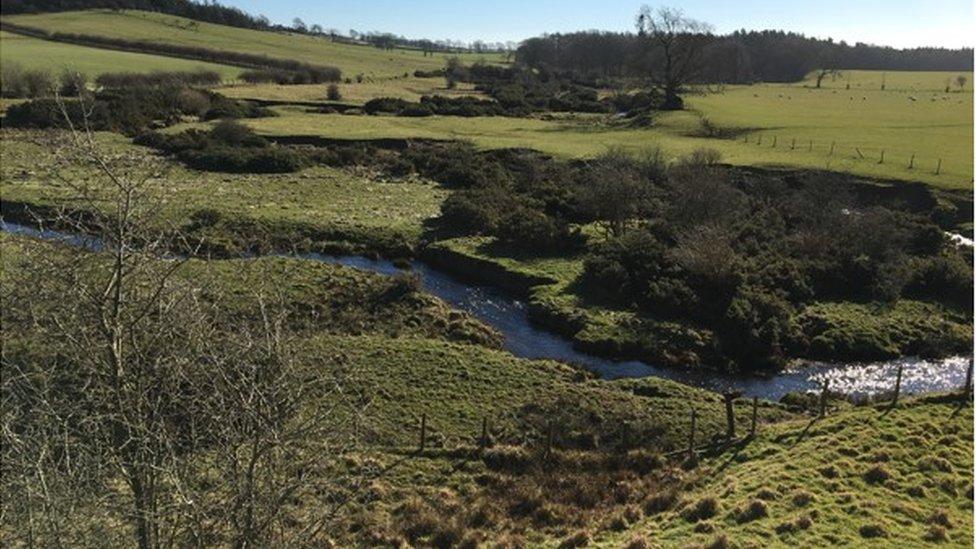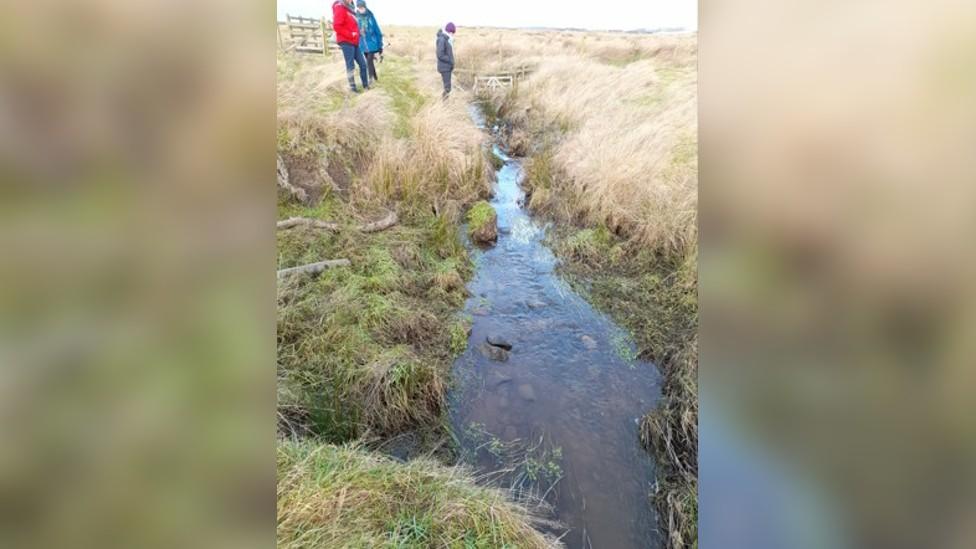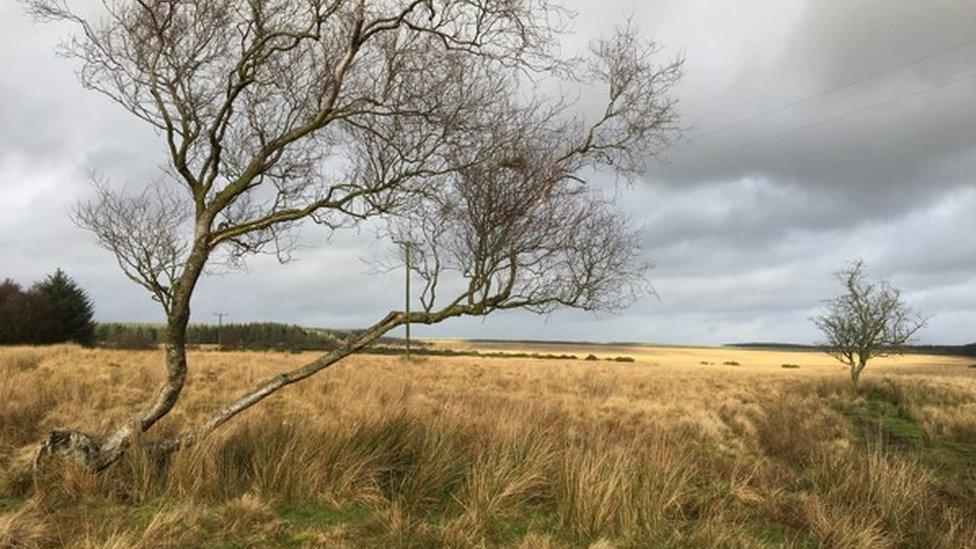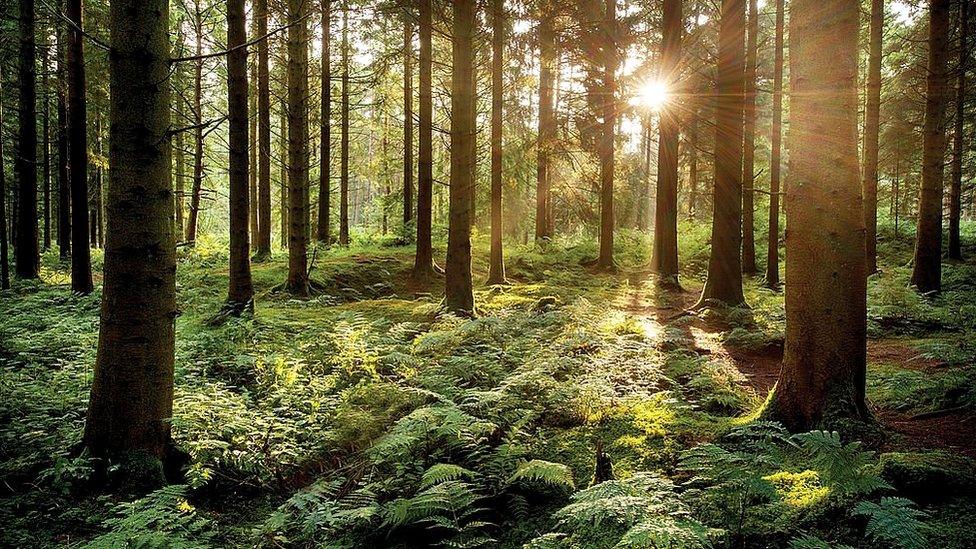Wansbeck trees and shrubs to be sampled for CO2 storage
- Published

The farmland offers a variety of habitats, including wetlands, grasslands and woodland
Trees, shrubs and soil will be sampled for carbon storage as part of a project to reduce greenhouse gas emissions.
The Wansbeck Restoration for Climate Change initiative is receiving £600,000 for the work, to assess how woodlands, grasslands and wetlands store carbon.
It will focus on 144 hectares (355 acres) of farmland around the River Wansbeck catchment in Northumberland.
The initiative is being managed by environment charity Groundwork North East & Cumbria.
The area spanning the Wallington, Middleton North and Little Harle estates, which lie between Belsay and Otterburn, will see mixed habitats including grasslands, peaty pockets and woodlands restored, as well as the rewilding of the river.
The aim is for managers, farmers and owners to work together with scientists from Natural England and Northumbria University in an attempt to reduce greenhouse gas emissions.
Currently almost all of the world's CO2 removal happens through natural processes, involving plants and trees taking in CO2 from the air and absorbing and storing it in the soil.
As well as collecting soil to be analysed, carbon storage will also be measured in trees and shrubs.

Ditches drain the pasture at Gallows Hill
More than 10,000m (33,000ft) of fencing will be installed along the river to stop free grazing and allow the watercourse find its own meander.
Peat will also be restored and hedgerows, grassland and trees will be planted.
Tony Juniper, from Natural England, said: "Many of the solutions to climate change are all around us in the natural world.
"From trees, hedges and grasslands that absorb carbon from the air to the peat-rich soils that hold it in the ground, there are huge opportunities to catch carbon while achieving other benefits at the same time, including increasing our ability to adapt to climate change impacts."

The peaty pastures of the Upper Wansbeck catchment will be restored

Follow BBC North East & Cumbria on Twitter, external, Facebook, external and Instagram, external. Send your story ideas to northeastandcumbria@bbc.co.uk, external.
Related topics
- Published19 January 2023
